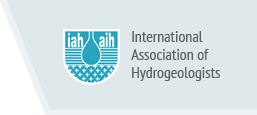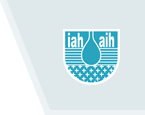Research Projects
This page lists a selection of international projects related to managed aquifer recharge. The list is not exhaustive and aims to inform about ongoing and past research activities on MAR from the international community. If you know other relevant projects that need to be listed here, please do not hesitate to contact us.
MARSOLUT
Managed Aquifer Recharge Solutions Training Network
(Mar 2019 – Feb 2023)
Coordinator: Christoph Schüth, Darmstadt Technical University, Germany. schueth@geo.tu-darmstadt.de.
Project website: https://www.marsolut-itn.eu.
MARSoluT is a four-year Marie Skłodowska-Curie Actions (MSCA) Innovative Training Network (ITN) funded by the European Commission. MARSoluT intends to tackle specific technical challenges in the operation of Managed Aquifer Recharge (MAR) sites on a scientific basis, specifically: a) chemical, biological and hydraulic processes resulting in clogging and reduction of infiltration rates; b) hydrogeochemical processes affecting the water quality, with special focus on micropollutants; c) performance monitoring and modelling, including reactive transport models to predict the fate of pathogens and emerging pollutants, and d) implications of the processes mentioned above on the technical design of MAR projects in the frame of regional flow models and water management plans. MARSoluT intends, at the same time, to train a significant number (12) of Early Stage Researchers (ESRs) to become experts in the application of MAR in the frame of an Integrated Water Resources Management.
DEEPWATER-CE
Development of an integrated implementation framework for managed aquifer recharge solutions for facilitate the protection of Central European water resources endangered by climate change and user conflict (May 2019 – April 2022)
Coordinator: Anikó Horváth, Mining and Geological Survey of Hungary. horvath.aniko@mbfsz.gov.hu
Project website: https://www.interreg-central.eu/Content.Node/DEEPWATER-CE.html.
The depletion of drinking water resources is a tremendous problem almost everywhere in the world. At the same time, there are more and more frequent heavy rains and floods, bringing huge amounts of water that we do not store. Eight DEEPWATER-CE partners are working together to build a joint water resource management strategy, including retention of excess water from periods of heavy rainfall that can be used to recharge groundwater.
As part of the DEEPWATER-CE project, pilot studies will be carried out in four countries (Poland, Hungary, Slovakia, Croatia) to examine available managed aquifer recharge solutions to develop the best methods and guidelines for Central Europe and the rest of the world.
DEMOWARE
Innovation Demonstration for a Competitive and Innovative European Water Reuse Sector
(Jan 2014 – Dec 2016)
Coordinator: Xavier Martinez Lladó,Fundacio CTM Centre Tecnologic, Spain. xavier.martinez@ctm.com.es.
Project website: http://demoware.eu.
The DEMOWARE initiative is an FP7 EU research project which aims to rectify the barriers that hamper the implementation of water reuse schemes by executing a highly collaborative programme of demonstration and exploitation, using nine existing and one greenfield site to stimulate innovation and improve cohesion within the evolving European water reuse sector.The project is guided by SME & industry priorities and has two central ambitions; to enhance the availability and reliability of innovative water reuse solutions, and to create a unified professional identity for the European Water Reuse sector. MAR is an element of most demonstration sites.
DESSIN
Demonstrate Ecosystem Services Enabling Innovation in the Water Sector
(Jan 2014 – Dec 2017)
Coordinator: David Schwesig, IWW Rheinisch-Westfälisches Institut für Wasser, Germany. d.schwesig@iww-online.de.
Project website: https://dessin-project.eu.
The EC-funded DESSIN project demonstrates innovative solutions for water scarcity and water quality issues, and shows the value of those solutions by also demonstrating a methodology for the valuation of ecosystem services. DESSIN aims to demonstrate how innovative solutions in the water cycle can increase the value of the services provided by freshwater ecosystems, enabling a more informed selection of the most promising solutions with regard to their impact on the water body and their economic implications. Two of the five DESSIN case studies (Llobregat in Spain and Westland in the Netherlands) are focused on aquifer storage and recovery.” Llobregat (Spain): https://dessin-project.eu/?page_id=44. Westland (NL): https://dessin-project.eu/?page_id=46.
MARSOL
Demonstrating Managed Aquifer Recharge as a Solution to Water Scarcity and Drought
(Dec 2013 – Nov 2016)
Coordinator: Christoph Schüth, Darmstadt Technical University, Germany. schueth@geo.tu-darmstadt.de.
Project website: http://marsol.eu.
The main objective of MARSOL, a European project co-financed by the EU FP7 programme, is to demonstrate that MAR is a sound, safe and sustainable strategy that can be applied with great confidence. The project is evaluating and demonstrating – at eight field sites in Greece, Portugal, Spain (2), Malta, Italy (2) and Israel – the different specific ways that water of varying origins and qualities (such as desalinated sea water, river water, and treated wastewater) can be stored in the ground with different techniques, including aspects of operation, maintenance and monitoring procedures as well as regulatory and economic considerations. MARSOL’s main output will be a broad knowledge base on MAR technologies for addressing different societal challenges related to water availability.
DEMEAU
Demonstration of Promising Technologies to Address Emerging Pollutants in Water and Waste Water
(Sep 2012 – Aug 2015)
Coordinator: Theo van den Hoven, KWR Watercycle Research Institute, the Netherlands.
Project website: https://demeau-fp7.eu.
The water and waste water sector is facing tremendous challenges to assure safe, cost-effective and sustainable water supply and sanitation services. DEMEAU promotes the uptake of knowledge, prototypes and practices from previous EU research enabling the water cycle sector to face emerging pollutants and thus securing water and waste water services and public health.


